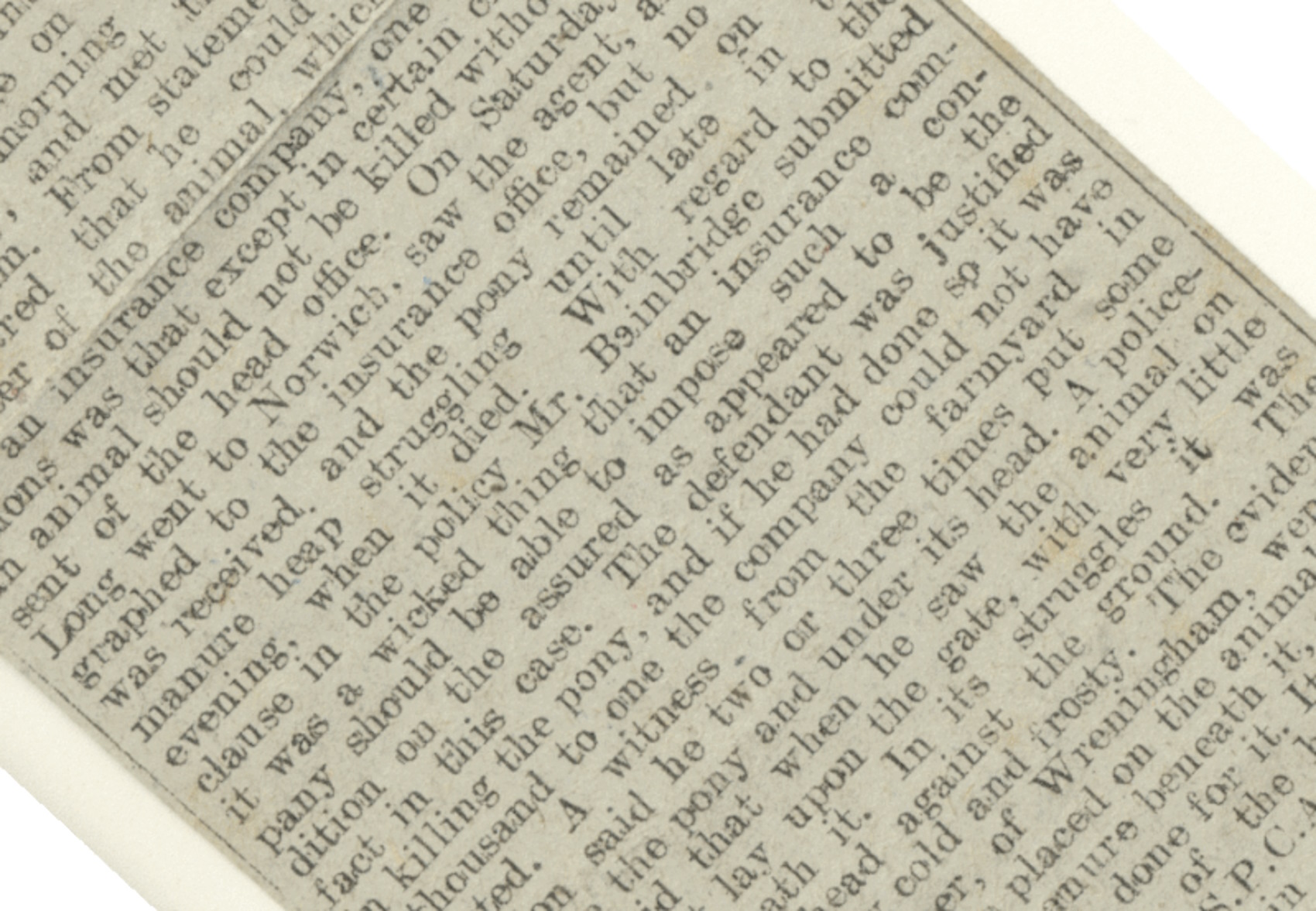
The 21st December, 1917, probably started as an ordinary day in the life of Dennis William Long and Victor Long, his son – a pair of Wreningham farmers, at Fir Grove. Their pony and driver, pulling a milk float, had set off from Fir Grove destined for Ashwellthorpe Station. However, at about 8am the pony fell down. Neighbouring farmer, John Rowe, (at Hill Farm, on the Turnpike) loaned a horse to ensure the milk float arrived at Ashwellthorpe Station in time for the train.
At 10am, Victor Long appeared at the scene to discover the pony still couldn’t stand. Victor tried to contact the vet, in Wymondham, but without success. By mid-afternoon they had found a large gate and tied the pony to it. With the help of a horse (belonging to John Rowe?), they dragged the pony and gate to John Rowe’s yard at Hill Farm. It was a cold day; to keep the pony warm they decided to place it on a heap of manure and added some straw whilst they decided what to do.
They had a dilemma. The pony might be terminally ill; what should they do for the best? Although the pony was insured, the insurance policy would only pay out if the company’s head office approved the animal being put down, first. It wasn’t until the next day, a Friday, that the vet arrived. In discussion with Dennis Long, the vet could not advise killing the animal.
In desperation, on the Saturday, Dennis Long travelled to Norwich to visit the insurance agent. They telegraphed the insurance company’s head office but got no reply. That evening, after a difficult day, the pony died.
The following month, there was a court case in Swainsthorpe; the prosecution was brought by the RSPCA. Mr J H Gurney was in the chair, supported by Sir Maurice Boileau and four others. Evidence was provided by a police officer and the ever-helpful neighbouring farmer, John Rowe. Inspector Armstrong of the RSPCA told the court that the pony was worn out and in poor condition. However, the Longs, who had only owned the pony for six months – having bought it for £20, completely disagreed.
The RSPCA man also took the view that there was insufficient manure under the pony and that they should have killed it on the first day.
The vet did not attend court – the Long’s solicitor kindly suggested the vet might have had “difficulty in travelling”. Unfortunately, this appears to have left the Longs defending themselves (partly) on hearsay evidence and their solicitor stated his regret about this.
The chairman said the bench were of the opinion the insurance company’s policy terms “tended towards unnecessary cruelty”. The bench also disapproved of the vet’s conduct in leaving the animal to die and not advising it being killed. Nevertheless, the two Long farmers were each fined £3!
The above is summarised from a (much more extensive) publication – presumed from early in 1918
